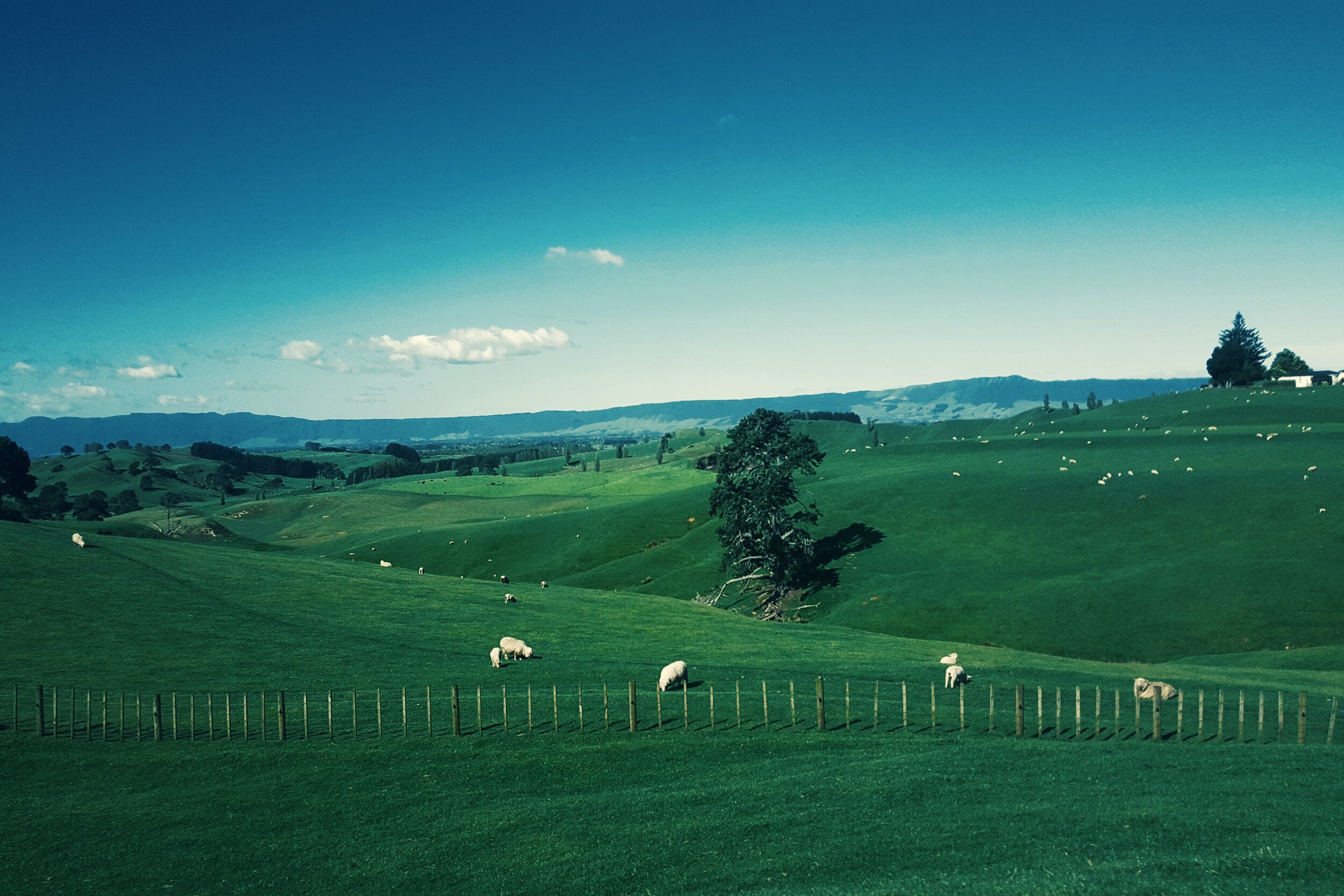How Eco-Friendly is New Zealand?
Written by Kendal Karstens
New Zealand is facing the effects of climate change now. It’s more important than ever to be a responsible traveler while visiting the beautiful island. So, how eco-friendly is New Zealand really?
Authenteco Travel creates perfect itineraries for destinations around the world. These itineraries are also responsible, sustainable, and ethical—three core values of Authenteco.
These values are what attracted us to New Zealand in the first place! New Zealand is beautiful, yes, but it’s also easy to feel good about the impact of your vacation there, if you know where to look and what environmental issues that country is facing.
The Environmental Issues New Zealand Faces
Scientists annually measure the snow levels of fifty glaciers around the world to analyze their health. In 2018, after a summer averaging at 5.4 degrees Fahrenheit warmer than usual, scientists realized the glaciers were at their smallest in the forty-year study. The fresh winter snow on thirty of the fifty glaciers melted during the summer and the glacier’s permanent ice is now exposed. Glacier melt, otherwise known as ablation, is only one effect of climate change impacting New Zealand. The Port Hill bushfire in 2017 burned 1,500 hectares of land (the size of about 1,340 football fields) and took 66 days to extinguish.
The Tasman Sea was sometimes as much as 10.5 degrees warmer than usual. The warmer water caused coral to die and changed rainfall patterns, in turn affecting agricultural production--the main industry in New Zealand.
Zero Carbon Bill
Without a doubt, New Zealand is facing the effects of climate change now. As a reaction to the climate crisis, the government signed into law a ‘Zero Carbon’ bill in November 2019. This bill legally mandates the government to reduce New Zealand’s greenhouse emissions to near-neutral levels by 2050.
To do this, the government established a Climate Change Commission made up of independent environmental experts. This Climate Change Commission will advise New Zealand’s government on how to reach their greenhouse gas targets and monitor its progress. The government already committed to transitioning New Zealand to 100% renewable energy and planting one million trees. Additionally, New Zealand’s government will now consider the environmental impact on all future bill proposals.
The climate crisis has clearly become an important consideration at every level of New Zealand’s government. New Zealand is ready for big changes to positively impact the planet.
How is New Zealand Fighting Climate Change?
While New Zealand’s government moves the country towards zero carbon, locals and local businesses are finding ways to combat climate change, too. Locals are speaking out and stepping up to protect their homes.
Joss Hooren, a New Zealand resident and writer at Little Green Globetrotter, says “there are definitely changes being made as the community makes its voice heard [through] active social media groups that organize local events and talks and distribute information. And there were recently lots of protests in response to an oil company holding a conference here [in Queenstown].”
Many New Zealanders are adopting sustainable practices into their daily lives, too, such as walking, cycling or taking public transportation instead of driving.
Farmers Are Taking Control of Climate Change
Palliser Ridge, one of our partners in New Zealand, is accredited with the international ‘Responsible Wool Standard’ rating. This rating recognizes farmers for treating their sheep ethically and taking a progressive approach towards land management that protects soil, biodiversity, and native species.
Many farmers are adopting other sustainable practices, such as reducing the number of animals on their farm, developing more efficient production technologies, and testing vaccines and new animal feed to decrease animals’ methane production.
New Zealand farms are also tapping into the tourism industry by opening up their farms to tours and guests. This supplemental income reduces the need for income from agricultural production. We’re proud to send our Authenteco travelers to some of these farms to support this sustainable change!
Since farming is one of New Zealand’s main industries, every step farmers are taking significantly helps the country’s efforts to be better stewards for the planet.
Air New Zealand Partners with Tiaki
Air New Zealand--the country’s national airline--is one of the most vocal companies fighting climate change, which might be shocking since the global airline industry contributes 2% of the world’s annual carbon emissions. Air New Zealand invests in electric airplane technology research and now serves edible coffee cups on their flights in an effort to reduce the 3.15 pounds of waste the average traveler produces on a flight.
The company also partnered with six other New Zealand tourism-based companies to create ‘Tiaki--Care for New Zealand.’ This “initiative actively encourages international and domestic travellers to experience New Zealand in a way that is safe, protects our environment, respects our [New Zealand’s] culture and protects the country for future generations.”
They encourage locals and travelers to make the Tiaki Promise. ‘Tiaki’ means “to “care for people and plants,” so the Tiaki Promise is a promise to take care of New Zealand by caring for its nature, people, and culture.
What Can You Do to Help?
According to Joss Hooren, travelers often drive too quickly and hit and kill native animals, such as the pukeko; let their dogs off leashes, allowing the dogs to kill kiwis and other endangered native birds; and destroy nature by camping in non-designated areas or without popular facilities.
Joss’ local perspective stresses the importance of the Tiaki Promise and why it asks travelers to drive carefully, be prepared, show respect, protect nature, and keep NZ clean.
Joss gives this additional advice to travelers:
If renting a vehicle, opt for electric
If visiting in winter, opt for electric-powered heating
Drive especially carefully at night
Keep dogs on leashes
Stick to designated paths and camping areas
Try planting a native tree to offset emissions
How Eco-Friendly is New Zealand?
It seems that nearly every New Zealander--from the government to the average citizen--is working to protect their country’s natural beauty.
We don’t expect perfection, but we do expect progress. New Zealand is striving to be more eco-friendly every day, and that’s true sustainability.
By selectively using sustainable and local businesses for your accommodations, food, and tours, you’re directly supporting and contributing to the locals’ efforts to preserve New Zealand’s beauty. Authenteco Travel is the easy way to ensure you do that. Interested in a custom vacation? Request a trip today!
Your sustainable travel efforts help preserve New Zealand so that future generations (and you on another future trip) can enjoy the country for years to come.
Want more travel insights or are interested in a trip? Check out these posts:
Is it safe to travel this fall?







